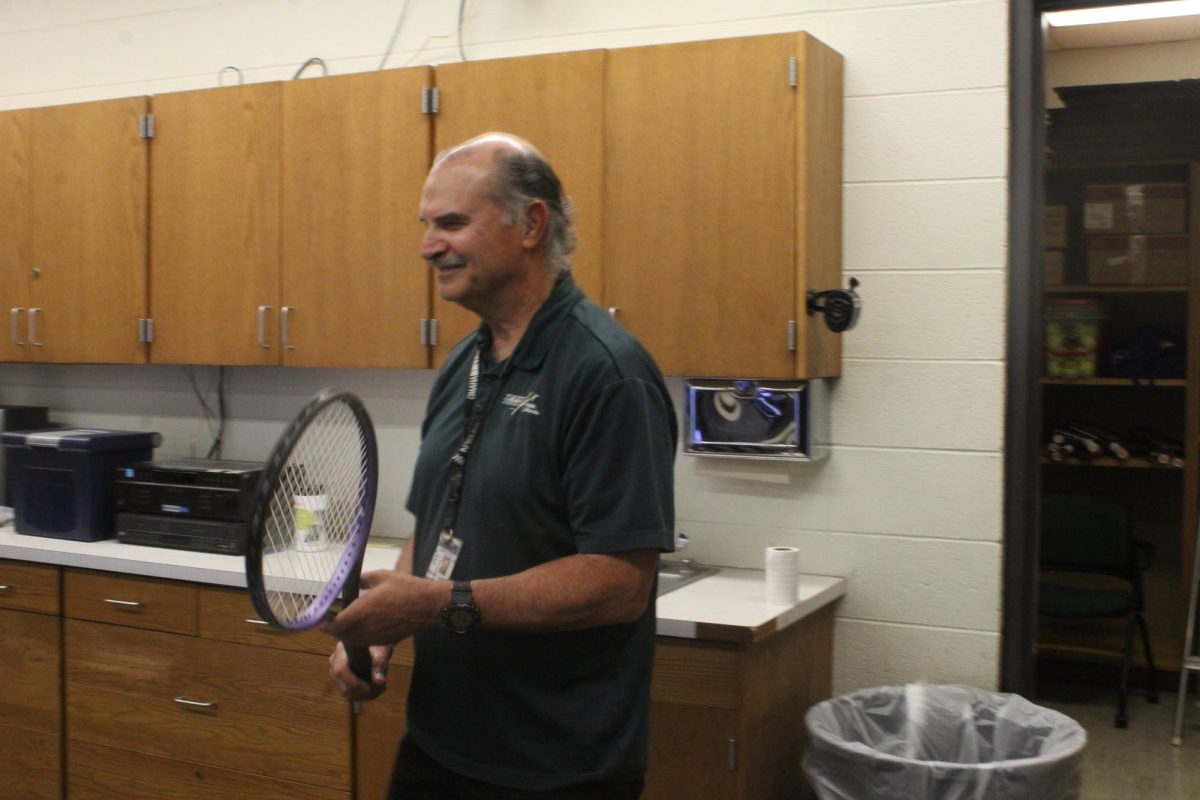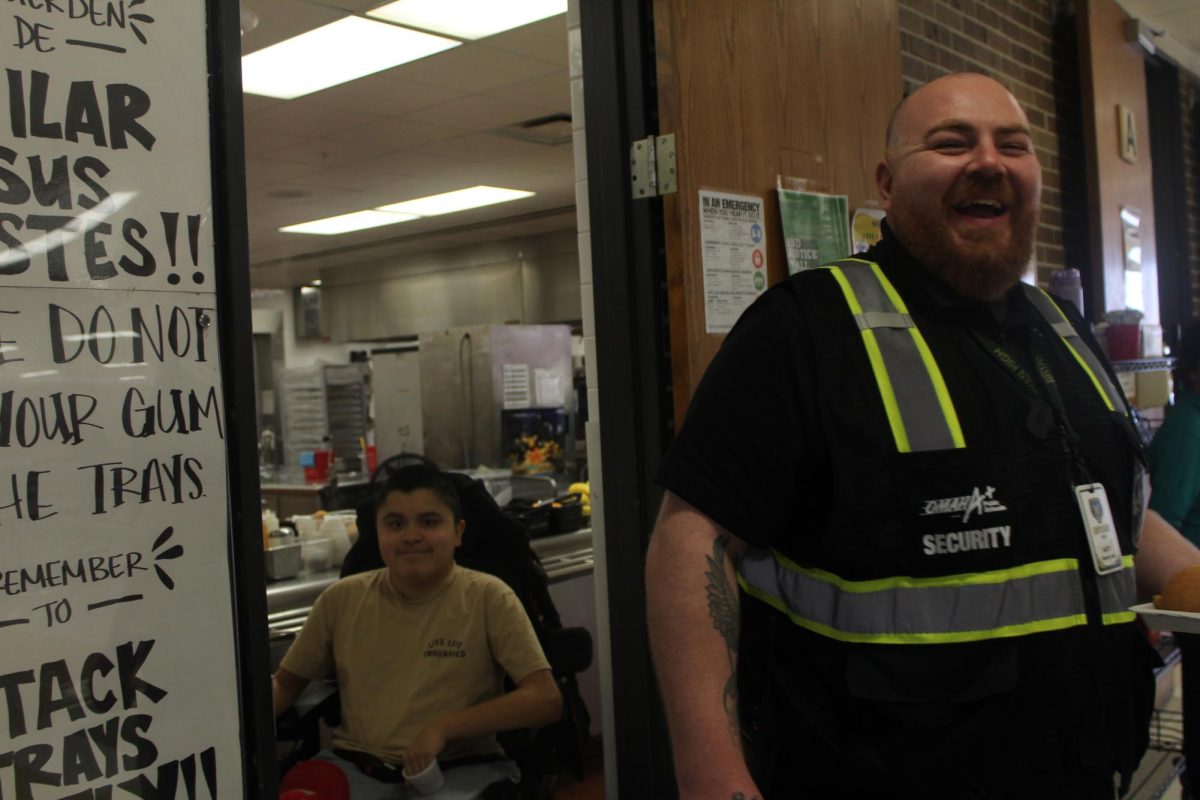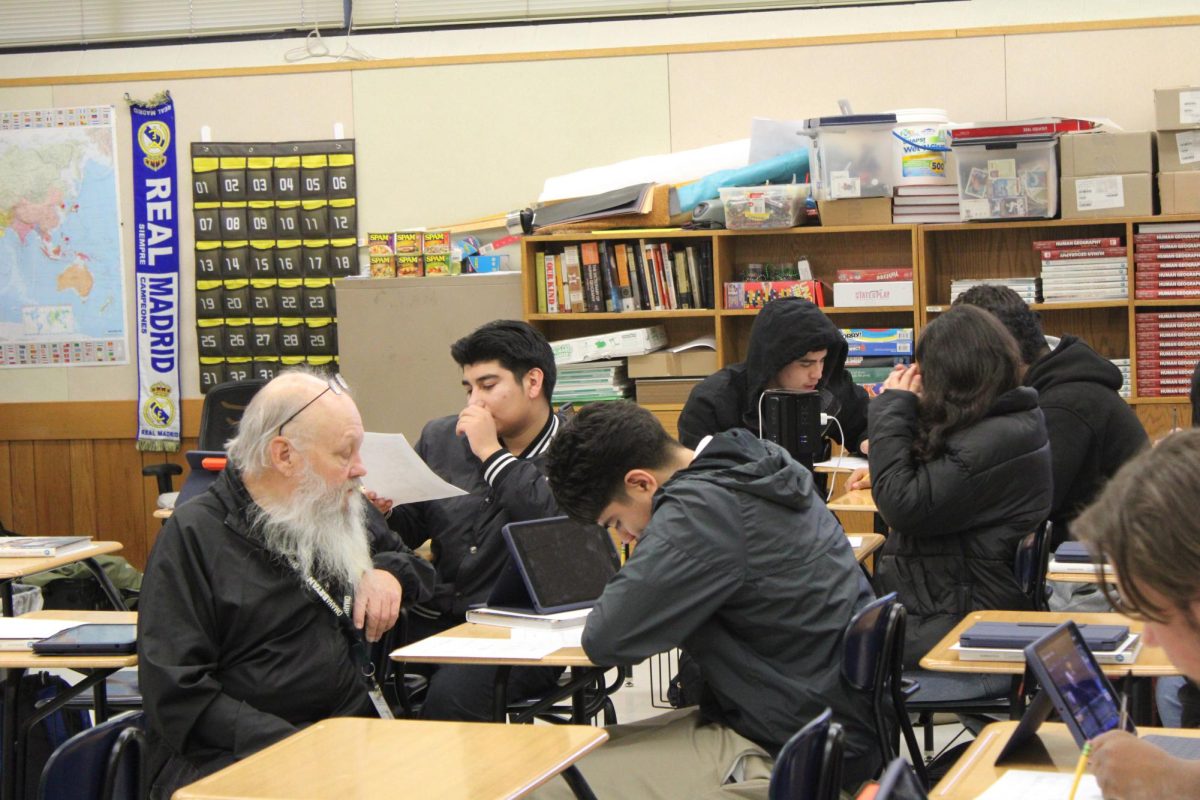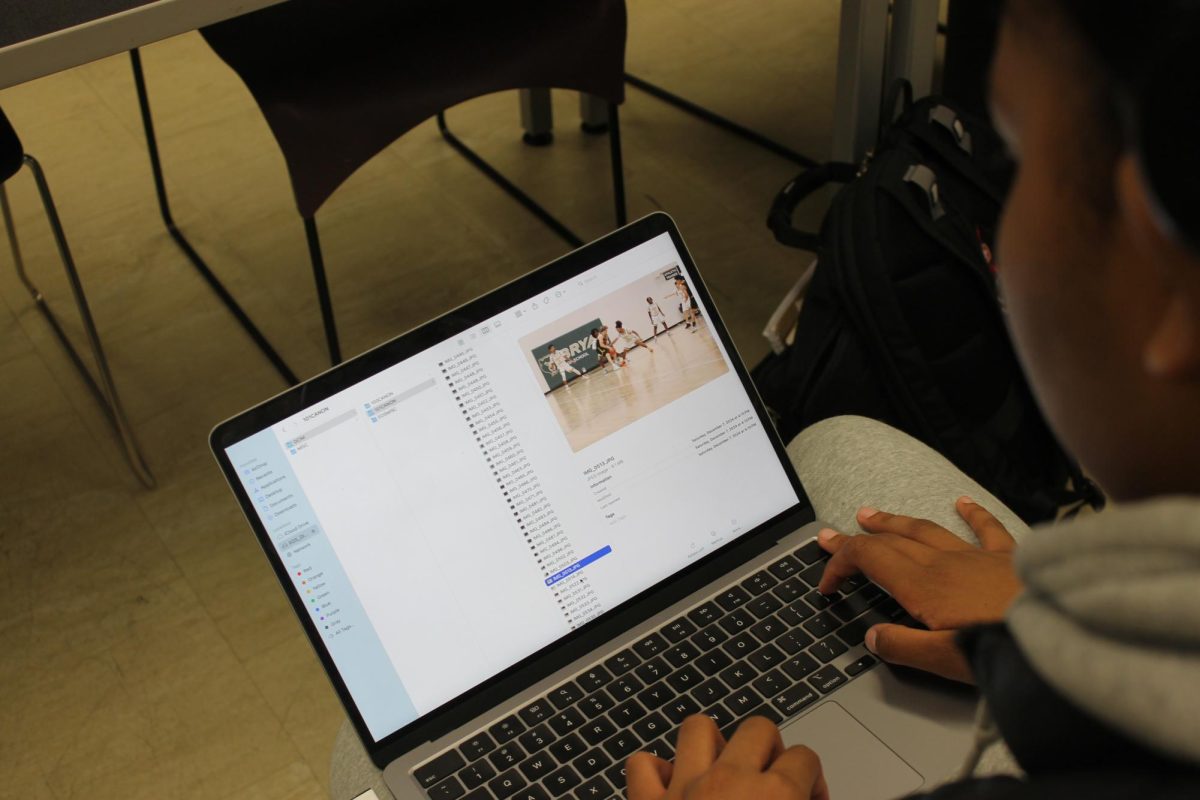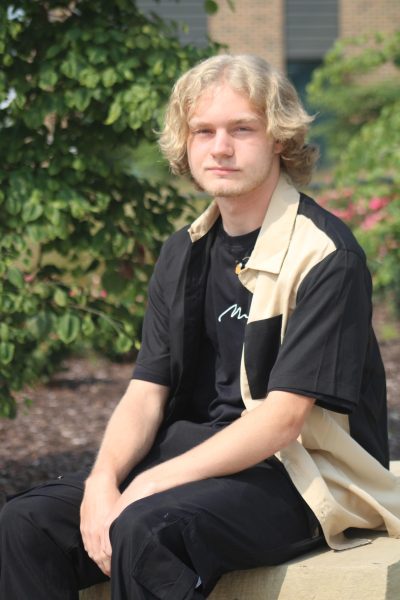While many are familiar with the spirited competitions of quiz bowl, where individuals showcase their knowledge across diverse subjects, there exists another competitor in the realm of academic competitions — academic decathlon, or aca deca.
Unlike its more widely recognized counterpart, Aca deca offers a unique and comprehensive approach to scholastic excellence that goes beyond quick-fire questions. It provides a curriculum along with the competitive events. It is available to all students as a class for honors credit.
“I really liked the class,” senior Charles Herron said. “It’s a chill class, and it’s just fun to learn about a new topic.”
Each year, teachers are provided new material to teach their students relating to the theme, and they cover six academic disciplines: science, literature, art, music, social science, economics and mathematics. This year’s theme was humanity and technology.
“It’s a fun more laid-back approach to teaching versus your traditional core classes,” adviser Angela Ecabert said. “It’s a nice, relaxing, fun environment where we just get to learn fun things. So, it’s not as much pressure.”
Aca deca also provides a different approach to learning, giving students the opportunity to grow their knowledge and show it off during competitions. In the competitions, teams are divided into three categories based on students’ grade point averages: honors, scholastic and varsity. Students then test in the six academic disciplines in their category.
Competitions start in January, when students compete in regionals if they choose to do so. If they do well, they can advance to state and then nationals. There is even an international competition, if students make it that far.
“It’s very easy, you just have to stay on top of it,” said senior Kevin Ruiz. “Just study on if you really want to do well on the contests and pass the class.”
Another contest students can participate in is the super quiz. In this quiz, two people go up on a stage together and answer questions. Points are given for correct answers, and the audience can see the points as they are updated on a video board.
Bryan’s team received bronze for placing third place in the super quiz at regionals but did not advance to state.




